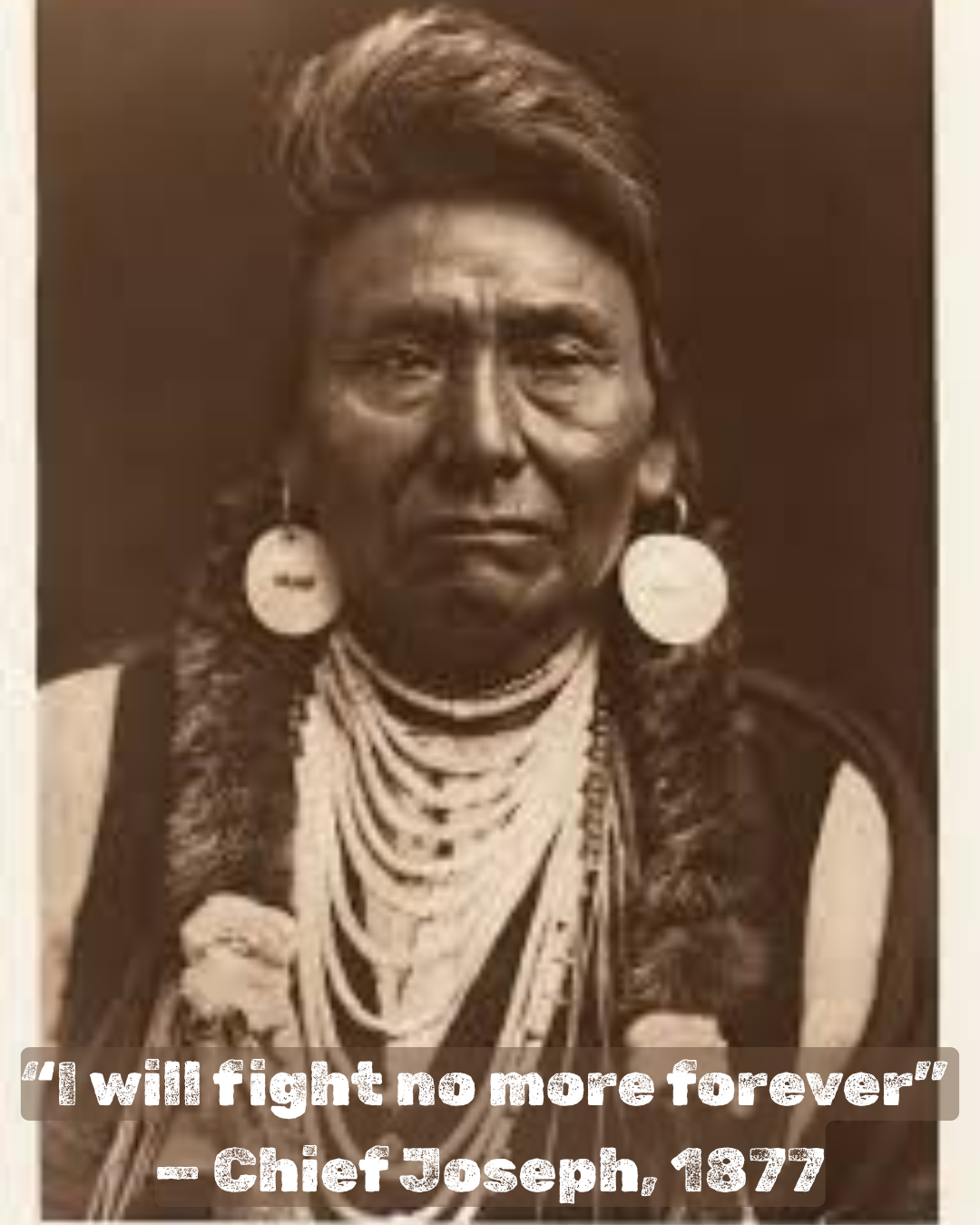
CHIEF JOSEPH: THE MAN WHO WALKED WITH HONOR, EVEN IN DEFEAT
Share
Some words don’t fade with time.
In 1877, Chief Joseph said these words after a 1,400-mile retreat, watching his people starve and freeze just miles from safety. It wasn’t surrender—it was sacrifice.
We should honor the ones who bore the weight of survival so others could live—no matter their race, gender, orientation, or beliefs.
Strength isn’t always loud. Sometimes, it’s the choice to stop fighting—for them.
The Land Meant Everything
Chief Joseph wasn’t born into war. He was born into a promise. The Wallowa Valley—lush, wild, sacred—was the ancestral home of the Nez Perce. His father had signed a treaty that said, in no uncertain terms, that land would remain theirs. But America has a long, blood-soaked habit of breaking promises to Indigenous people.
When settlers and gold hunters came flooding in, the U.S. government redrew the lines—cutting the Nez Perce down to a fraction of their homeland and telling them to move to a reservation. Chief Joseph said no. Not out of pride, but out of duty. That land held his people’s stories, graves, and gods.
1,400 Miles of Defiance
In 1877, when war came, Joseph didn’t charge into battle with rage. He carried his people—literally and spiritually—across nearly 1,400 miles of brutal terrain. They fought 18 battles. Crossed rivers in winter. Evaded an army of over 2,000 U.S. soldiers. All while protecting their elders, children, and wounded.
He wasn’t just a chief. He was a tactician, a guardian, and a man trying to outmaneuver a machine designed to erase his people.
And he almost pulled it off.
“I Will Fight No More Forever”
Just 40 miles from the Canadian border—40 miles from freedom—he was forced to surrender. His people were dying. They had no blankets, no food, and nowhere else to run. So Chief Joseph walked into the cold and gave a speech that would echo through history.
“I am tired. My heart is sick and sad. From where the sun now stands, I will fight no more forever.”
He didn’t give up. He gave what was left of his strength to save what was left of his tribe.
The Fight Didn’t End There
After the surrender, the government lied—again. They didn’t let the Nez Perce return home. Joseph was exiled. But he kept fighting in a different way: with words. He went to Washington. Met with presidents. Spoke truth to power. Demanded land, justice, and dignity.
He never got it.
He died in 1904 on the Colville Reservation in Washington. The doctor said it was from a broken heart.
Legacy Etched in Stone
Chief Joseph didn’t leave behind an empire. He left behind something harder to build: a legacy of honor in the face of betrayal. Of restraint when rage would’ve been justified. Of walking the hard road when the easy one meant surrendering your soul.
This world loves to praise loud men. But the strongest ones are often quiet—their power etched into mountains, rivers, and the memory of a people who refused to be forgotten.
I was able to visit Chief Joseph’s final resting place. It overlooks the very valley and mountains he was born into. You don’t just see the land—you feel it. There’s a sacred stillness there. A peace that doesn’t come from surrender, but from enduring. From surviving. From standing your ground long after the battle ends.
